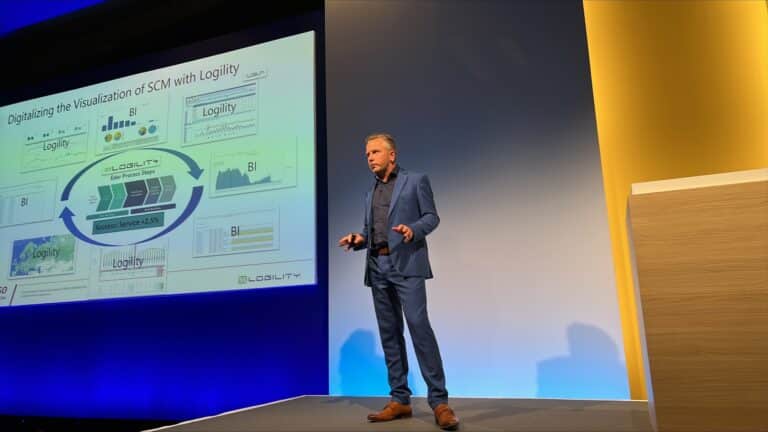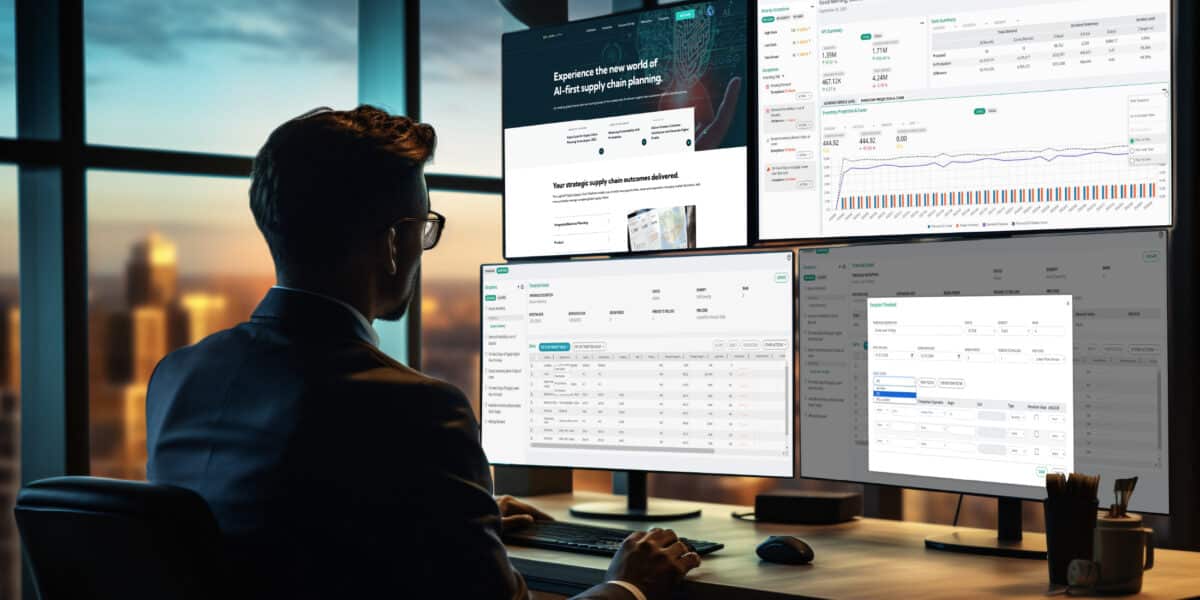
Disruptions in supply chain operations are here to stay. They’re increasing in complexity and raising the stakes on the production and distribution of goods – pushing supply chain sustainability improvement initiatives to the back burner.
DENSO Corporation, a global automotive components manufacturer, is bucking that trend with tighter collaboration and a different outlook on supply chain disruption. According to the company’s Demand, Inventory, and Supply Planning Manager Mark Turk, this ever-evolving environment brings new opportunities for rethinking processes, redesigning organizational structures, and redefining business value.
“We decided to embrace the change because we realized that operating in silos is not ideal,” Turk shared during his session at Gartner’s EMEA Supply Chain Symposium/Xpo conference in Barcelona, Spain. “The experience pushed our teams to collaborate – from product development and management to sales and logistics – so we can develop ourselves and get ready internally to tackle any disruption.”
Finding opportunities to collaborate in every disruption
Market dynamics are churning out challenges faster than their assembly lines can keep up in this era of constant supply chain disruption. But instead of ignoring or reacting to disruptions, DENSO adapts its global manufacturing operations – involving 70,000 employees across 35 countries – to address them strategically and meet sustainability goals for zero emissions.
“Companies risk collapsing when they react to a disruption in ways that deviate from their mission and values,” warns Turk. “By working together, we are better equipped to avoid this mistake, inspiring trust among our people because we still walk the talk.”
Representatives from its sales, supply chain, and logistics departments come together to identify the disruption and its impact on costs, revenue, people, resources, manufacturing capacity, and customers. Then, the team members disassemble, returning to their respective organizations to discuss potential challenges with their experts and recommend viable options to tackle them. By the time the team regroups, everyone knows what’s needed to prepare the business and move forward.
It’s clear that communication and collaboration are essential to DENSO’s success. However, none of this work is accomplished through thoughtful conversation and manual assessments alone.
“With Logility at the center of our IT ecosystem, we can better control supply chain disruptions using advanced analytics that provide early detection and resolution,” Turk says. “And our supply chain will continue to perform efficiently despite the changes associated with digitalization, electrification, and sustainability.”
With this information, DENSO’s S&OP process is well-positioned to identify demand trends, new opportunities to seize them, and the right sales and marketing campaigns to win customers. Business planners can access the latest forecast, update changes in their supply chain systems, and receive alerts whenever stock levels of a particular automotive component are running low or in excess.
Planners also have better visibility to make critical decisions faster, such as expanding a warehouse or moving stock elsewhere to free up the operation. This information serves multiple entities and is being shared with DENSO’s management team and headquarters in Japan.
“We can now decide when to act to mitigate risk in the future. By visualizing our future stock levels, we can prepare for economic shifts in each region such as inflation, trade restrictions, and geopolitical events — as well new sustainability compliance mandates and changes in our competitive landscape,” reflects Turk.
Meeting demand with sustainable products and operations
With Logility’s Digital Supply Chain Platform, DENSO believes it has the right technology to enable a solid and agile S&OP process to help build a high-growth and sustainable future.
Turk reports that the company “established €43 billion in revenue last year, which is a 10% increase over the previous year.” At the same time, the company has been making strides in reaching carbon neutrality by eliminating CO2 emissions from its manufacturing processes and promoting products powered by electricity and other mobility products.
To learn more about how clients like DENSO are responding rapidly to market disruptions watch our webinar on Supply Chain Predictions: Trends and Insights from Gartner Supply Chain Symposium 2023 on-demand. You can also learn more about Logility’s S&OP solutions by getting in touch here.


